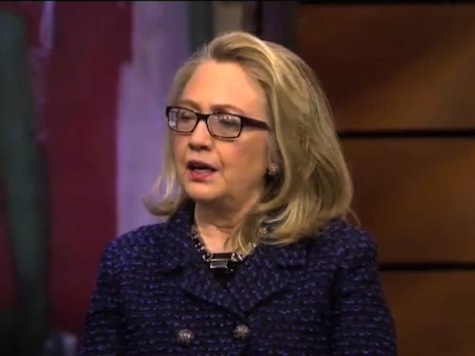LEIGH SALES, AUSTRALIAN BROADCASTING CORPORATION: Now, in a moment I’m going to throw to questions around the world, as I just explained. But first of all, I just want to us to set the scene a little bit by talking about some of the big foreign policy issues that are around in the news. So let’s start with North Africa, which has been very prominent lately. We’ve seen the Islamist extremists in Algeria, of course the ongoing problems in Libya, the crisis in Mali, in recent days violent protests in Egypt. How much of a global security threat is this region?
SECRETARY HILLARY CLINTON: Well, Leigh, it is becoming a threat, first and foremost, to the people of the region. This is not what the Arab revolution was about, and there’s a great deal of concern across the region about people who choose to use violence to try to impose their extremist views rather than participate in politics. It does have the potential, however, of expanding beyond the region, which is why I think you’re seeing an international concern and coalition coming together to support the people of Mali, to stand by the Government of Algeria, to work with the Government of Libya, so that they themselves are given the tools they need to combat this extremist threat.
MS. SALES: Has there been an insufficient global focus on that part of the world to now?
SECRETARY CLINTON: Well, I think historically there has been exactly that, that much of Africa – you can separate North Africa from Sub-Saharan Africa – have not had the kind of attention on a range of issues, whether it’s security or development. But that is changing, and it’s very exciting to me that I think seven of the fastest performing economies in the world now are in Sub-Saharan Africa. It’s also exciting to see people in North Africa, after so many decades of oppression, looking to find their own way forward democratically.
But transformations are never easy and they are never preordained. If North Africa and the fruits of the Arab revolution are to be democracy, prosperity, better opportunities particularly for the young people of the region, the people themselves will have to ensure that. And in Sub-Saharan Africa, helping to improve governance and create more opportunity has been one of my primary goals.
MS. SALES: The world saw your passionate response to a Senate committee last week about what happened in Benghazi. You said that you want the focus to be on making sure that something like that can’t happen again. But is it really possible to prevent things like that from happening?
SECRETARY CLINTON: Well, we live in a dangerous world and it’s unpredictable and complex. I think we in government have to do everything we can to provide as secure conditions as possible for our diplomats, our development experts, in order that we don’t end up in bunkers, abdicating from regions that are important to us. But it’s also now an increasing threat, as we saw with the Algerian hostage taking, to businesses, to cultural institutions. We’ve seen the extremists destroying shrines and libraries that were holding priceless remnants and artifacts that were of great meaning to people. So yes, it’s something we have to deal with, but we have to also be realistic that we live in this dangerous world and we can’t retreat from it.
MS. SALES: When we were watching that hearing, we saw the Republican committee members go on the attack. Is Washington today more bitterly partisan than it was when you were first lady, or has it always been like this and we just have a recency bias?
SECRETARY CLINTON: It has been increasingly partisan. It was 20 years ago, 30 years ago, you can go back in history and see certain constituencies represented in our Congress and our politics certainly squaring off against each other. But it’s become more so, and it’s also resulted in less productivity. You can be partisan, you can have a strong sense of the rightness of your position, but democracy and certainly legislative bodies require compromise. And you can’t let compromise become a dirty word because then you veer toward fanaticism.
I mean, we were just talking about extremists who think it’s only their way, they are the ones who have the truth, none of the rest of us have any kind of claim on what is real in their views. And so it’s important in our democracies – like Australia, like the United States – that yes, be passionate, be intense about your feelings, but at the end of the day you’ve got to serve the people who sent you there, and that requires compromise.

COMMENTS
Please let us know if you're having issues with commenting.